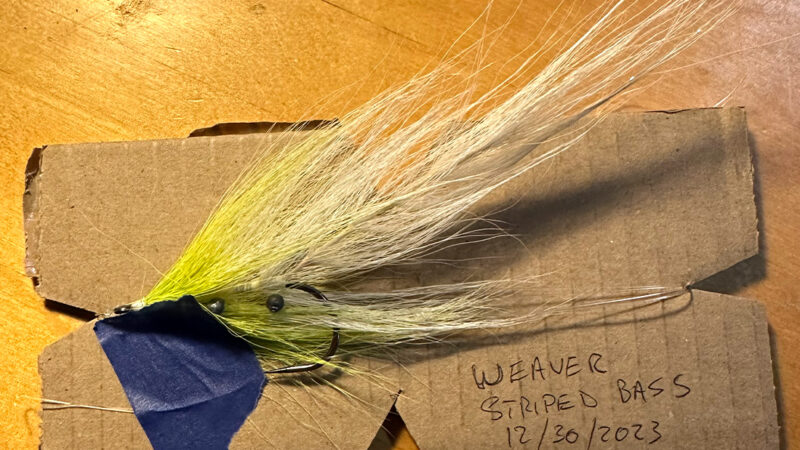House Votes to Delist Gray Wolves, Block Lead Ammo Bans, End Boundary Waters Protections, and Overturn BLM Rule
The U.S. House of Representatives passed four bills on Tuesday that could have resounding implications for America’s natural resources and land management policies. Although they are unlikely to pass the Senate or President Biden’s desk, their treatment on the House floor sends a clear message to voters from a mostly Republican-led block of legislators. It also shows the contention around conservation-related issues that outdoorsmen and -women will have to parse as they ahead of November’s election.
All four bills are in some way related to environmental protections that have been enacted during the Biden Administration, and they touch on hot-button issues that tend to divide hunters and anglers along political lines. Two bills would reverse key parts of the administration’s agenda by withdrawing a recently enacted BLM rule that elevates conservation as a land use priority, and by rescinding a ban on mining operations near Minnesota’s Boundary Waters. Along with other conservation groups, Backcountry Hunters and Anglers called attention to the risks posed by these bills in the days leading up to Tuesday’s session.
“If passed into law, each of these bills would reverse public land management decisions that benefit intact fish and wildlife habitat valued by hunters and anglers across the United States,” BHA warned in a press release. “Backcountry Hunters & Anglers strongly opposes these bills that would reverse hard-won conservation achievements supported by our members.”
The other two proposals that passed the House would prohibit federal bans on lead ammunition and fishing tackle, and remove federal Endangered Species Act protections for gray wolves in the Lower 48. Here’s a breakdown of each bill, and how it would impact hunters, anglers, and conservation.
Overturning the BLM Public Lands Rule
The WEST Act, which stands for Western Economic Security Today, would direct the Bureau of Land Management to withdraw its recently enacted Public Lands Rule. That rule, which was finalized just two weeks ago, represents a seismic shift in how the federal agency manages public lands by placing conservation and land restoration on equal footing with traditional uses of BLM lands such as energy development, mining, and livestock grazing.
“Our public lands provide wildlife habitat and clean water, the energy that lights our homes, the wood we build with, and the places where we make family memories,” BLM Director Tracy Stone-Manning said of the new Public Lands Rule earlier this month. “This rule honors our obligation to current and future generations to help ensure our public lands and waters remain healthy amid growing pressures and change.”
Critics of the new rule like Utah Rep. John Curtis, who introduced H.R. 3397, have argued that this change will negatively affect and undermine the traditional uses of BLM land while handicapping the rural residents who depend on them. Curtis has referred to the new rule as an “offensive attack on rural Utah” and as “favoring wealthy individuals and environmental groups,” according to the Utah News Dispatch.
Read Next: The BLM Wants to Make Conservation a Bigger Land-Use Priority
The bill passed by a 212-202 vote, with most lawmakers voting along party lines. Three Democrats — Henry Cullar of Texas, Jared Golden of Maine, and Marie Gluesenkamp Perez of Washington — joined Republicans in supporting the bill, while Brian Fitzpatrick of Pennsylvania was the only Republican representative to vote against it.
Overturning Boundary Waters Protections
On a more localized scale, the Superior National Forest Restoration Act would roll back the Biden Administration’s 2023 order to protect the Boundary Waters Wilderness and surrounding national forest lands from mining. It would also require the U.S. Forest Service to reissue all cancelled mineral issues in the area.
Announced in Sept. 2023, the Department of the Interior’s Public Land Order placed a 20-year moratorium on mining in roughly 225,000 acres of public lands within the Superior National Forest, effectively halting Twin Metals’ attempts at building a copper-nickel mine there. This move was celebrated by sportsmen and conservationists across the country, who view the Boundary Waters Canoe Area Wilderness as an important and irreplaceable resource that belongs to all American citizens. (On top of being a renowned hunting and fishing destination, the BWCAW is the nation’s most highly visited wilderness area, and the largest of its kind east of the Rockies and north of the Everglades.)
The mine’s proponents have argued that tapping the mineral reserves in the BWCAW is a matter of national and economic security, and they’ve referred to the Biden Administration’s mineral withdrawal as an attack on the rural communities that they say would benefit from the mine. This includes Rep. Pete Stauber, who introduced the Superior National Forest Restoration Act to “remove the obstacles put in place by the Biden Administration” and “safely deliver Minnesota’s mineral wealth to the nation,” the Minnesota Reformer reports.
Meanwhile, conservation groups like Sportsmen for the Boundary Waters have denounced Stauber’s proposal as setting a dangerous precedent for America’s wilderness areas. These groups and others have also pointed out that Stauber represents the three Minnesota counties that would benefit the most financially from the Twin Metals mine.
Read Next: The Wilderness War: Ice Fishing the Boundary Waters Canoe Area Wilderness
“H.R. 1395 would unravel [the protections achieved in 2023], directly threatening our cherished outdoor traditions in Northeast Minnesota, again making the Quetico-Superior region vulnerable to toxic mining practices,” Sportsmen for the Boundary Waters executive director Lukas Leaf said in a Facebook post leading up to the House vote. “This legislation flies in the face of those who love clean water, wildlife, and the world-class fishing and hunting opportunities the Boundary Waters provides.”
Stauber’s bill passed the House by a vote of 212-203.
Blocking Lead Ammo and Tackle Bans
The Protecting Access for Hunters and Anglers Act seeks to bar the federal government from imposing any bans on lead ammunition or fishing tackle on federal lands. This bill, introduced by Rep. Bob Wittman of Virginia, was floated in direct response to a Final Rule made by U.S. Fish and Wildlife Service in 2022 that expanded hunting and fishing at 18 different National Wildlife Refuges across the country, while also banning the use of lead ammo and tackle at those same refuges by 2026. Although some hunters and anglers supported the rule as a way to protect fish and wildlife from lead poisoning, many sportsmen’s groups opposed the rule at the outset, calling it a “bait-and-switch” tactic that was not based on the best available science.
H.R. 615 passed 214-201, with only two Republican representatives voting against it and seven Democrats supporting it. Some of the bill’s opponents called it an attempt by special interest groups to block any gun-related legislation, while its supporters framed it as a way to ensure that America’s hunters and anglers aren’t priced out of the outdoor sports they love due to the higher cost of non-lead ammo and fishing tackle.
Delisting Gray Wolves
A proposal that would remove ESA protections for all gray wolves in the Lower 48 made it through the House by a narrower margin relative to the other three bills. Led by Colorado Rep. Lauren Boebert, the Trust the Science Act passed 209-205. This bill would require the Department of the Interior to reinstate a 2020 rule that removed gray wolves from the Endangered Species List but that was overturned by a federal judge in 2022.
H.R. 764 seeks to return management of gray wolves to the states. And it’s introduction by Boebert reflects the unease being felt across her own home state as rural Coloradans express their concerns with the state’s ongoing wolf reintroduction efforts. In the days and weeks leading up to the House vote on H.R. 764, multiple stockgrowers associations sent letters to Gov. Jared Polis asking Colorado Parks and Wildlife to euthanize some of the wolves that have been blamed for killing cattle. CPW denied that request.
Read Next: As Wolf Management Debate Reaches a Fever Pitch, the Interior Department Hires a National Mediator
On the heels of Tuesday’s vote, Boebert and other supporters, including Washington Rep. Dan Newhouse, pointed to the recovery of gray wolves in Western states like Montana and Idaho, where current wolf populations are well over the recovery goals that were initially set by the USFWS.
“The gray wolf is fully recovered and should be delisted in the lower 48 states,” Boebert said in a press release Tuesday. “Today’s passage of my Trust the Science Act empowers states and puts people ahead of violent predators.”
The post House Votes to Delist Gray Wolves, Block Lead Ammo Bans, End Boundary Waters Protections, and Overturn BLM Rule appeared first on Outdoor Life.
Source: https://www.outdoorlife.com/conservation/wolf-boundary-waters-bills/







